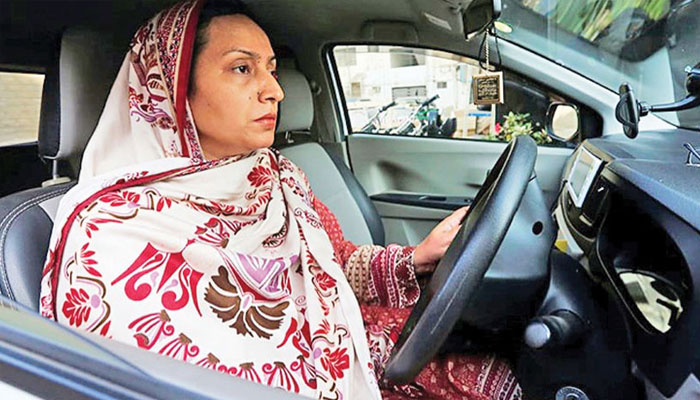jilino1 live casino
 jilino1 live casino
Of course, with great power comes great responsibility. The rise of AI in the gambling industry raises a number of important ethical and regulatory questions. As AI algorithms become more sophisticated and powerful, there is a risk that they could be used to exploit vulnerable individuals and exacerbate problem gambling behaviors. It will be crucial for Amazon and Perplexity to work closely with regulators and industry stakeholders to ensure that their AI-powered gambling platforms are deployed in a responsible and ethical manner.
jilino1 live casino
Of course, with great power comes great responsibility. The rise of AI in the gambling industry raises a number of important ethical and regulatory questions. As AI algorithms become more sophisticated and powerful, there is a risk that they could be used to exploit vulnerable individuals and exacerbate problem gambling behaviors. It will be crucial for Amazon and Perplexity to work closely with regulators and industry stakeholders to ensure that their AI-powered gambling platforms are deployed in a responsible and ethical manner.
No country and its people have learned the hard lessons of economic management quite like Sri Lanka. This isn’t said with sarcasm but with deep recognition of a nation shaped by economic challenges. Our struggle to reform and adapt to internal and external shocks has been long and arduous. The COVID-19 pandemic further aggravated existing issues but also brought an unexpected silver lining—accelerating digital adoption in both personal and professional spheres. The pandemic became a turning point, compelling citizens to rely on digital tools for banking, utilities, shopping, meetings, and even official processes like the unforgettable fuel QR code system. While the Sri Lankan IT sector had already laid the groundwork for digital transformation, widespread adoption only took off when the lockdowns left no alternative. These experiences underscore that digitalisation is no longer optional—it is essential. People have come to believe in its power to reduce costs, enhance efficiency, boost citizen engagement, and minimise delays. Digital transformation is not just a necessity but the path to a more sustainable future for Sri Lanka. Next Steps: A Nation Poised for Digital Change Unlike any previous administration, President Anura Kumara Dissanayake’s Government has underscored digitalisation to a national priority, using it as a bandwagon even during election campaigns. The President has pledged that Sri Lanka will undergo a comprehensive digital transformation within the next three years. His administration views digitalisation as a grand catalyst to boosting the country’s global competitiveness, highlighting that several initiatives are already underway. Can the Government Deliver? Th core and focal element of this transformation is the introduction of a digital identity card. This long-discussed concept has repeatedly surfaced but went into oblivion due to shifting political interests rather than a lack of professional capability. Sri Lankan IT professionals have long supported this initiative, recognising that a digital ID could serve as the foundational database for managing Government services and streamlining administrative processes. With accurate, real-time citizen data, public services could become more accessible, transparent, and efficient. The Private Sector: Leading by Example While the Government is still catching up, the private sector is already firing on all cylinders. Businesses are exploiting all possible digital tools as essential drivers of cost reduction and productivity. Digitalisation allows organisations to combat corruption, minimise waste, and optimise expenditures—all while boosting customer experience and maximising profitability. For them, it’s not at all anice to have but acompetitive necessity. The Government Must Follow Suit To realise the vision of a fully digital Sri Lanka, the Government must adopt the same level of urgency as the private sector. Public-private partnerships could be instrumental in fast-tracking digital projects while leveraging the expertise and resources already present in the country. A collaborative approach will ensure that digital transformation isn’t just a political promise but a reality that reshapes Sri Lanka’s future. Does the Government Have the Right People? There’s little room for complaint when it comes to the team driving Sri Lanka’s digital transformation. President Anura Kumara Dissanayake has strategically appointed some of the country’s most qualified and experienced professionals, well-versed in the nation’s technological landscape. A key figure in this effort is Dr. Hans Wijayasuriya, initially appointed as the President’s Chief Advisor on the Digital Economy and later named Secretary to the Ministry of Digital Economy and Chairman of ICTA (Information & Communication Technology Agency). His appointment has been widely welcomed by the public, specially people who hail from the corporate sector. Dr. Wijayasuriya’s expertise extends far beyond telecommunications, where he played a pivotal role in digitally transforming Sri Lanka’s telco sector. His leadership has driven progress in areas such as digital health, digital finance, digital education, digital insurance, digital welfare, and CSR initiatives. His proven track record highlights a clear capacity for managing complex national-scale digital projects. The broader digitalization team also features highly capable professionals recognized for their technical proficiency and leadership. These appointments underscore the Government’s genuine commitment to making digital transformation a reality, demonstrating a thoughtful alignment of roles with relevant expertise. Managing the Change Managing the digital transformation politically and publicly is one of the major challenges the Government may face. A historical reminder is the resistance encountered when biometric systems were introduced to track Government employees’ attendance. Such pushback reflects a deeper challenge—overcoming entrenched mindsets. However, the winds of change are evident. Sri Lankans have recognized past inefficiencies and voted for a Government promising ‘Change’. This willingness for change creates a valuable starting point for the Government to tackle resistance proactively and ensure smooth implementation. Another crucial aspect is transforming the attitudes of Government service providers. They must embrace a service-oriented mindset driven by responsibility and transparency. Digitalized processes can serve as the key catalyst, simplifying workflows, reducing bureaucratic delays, and fostering accountability. Potential concerns about data security are also inevitable. Citizens may question, “Is my data secure with the Government?” It is essential to highlight that most people have already shared their personal information with private entities like supermarkets, banks, hospitals, telecom providers, and educational institutions for various services. With the project in capable hands, the Government must deploy the best digital infrastructure while ensuring robust cybersecurity protocols to protect sensitive data. Above all, the Government needs a well-structured communication and change management plan to engage the public, Government agencies, and employees. Clear messaging, transparency, and consistent engagement will be critical in rallying support for this transformative initiative, setting Sri Lanka on a path toward digital excellence. Global Examples: Proof of Possibility Sri Lanka is not the first country to embark on a journey toward digital transformation. If other nations, including emerging economies, have successfully aligned their Governments and citizens with digitalisation, why can’t we? While countries like the USA, Canada, and Scandinavian nations are often cited, their models might seem too far removed from our reality. However, several emerging economies have proven that digitalisation can be the driving force behind their solid growth trajectory hither to have proven. * Nigeria: Despite funding challenges, Nigeria’s National Identification Number (NIN) and Bank Verification Number (BVN) systems now serve over 100 million citizens. These initiatives have strengthened digital services, promoting financial inclusion and economic growth. * India: The Aadhaar system, the world’s largest biometric digital ID programme, covers over 1.3 billion people. It supports essential services like banking, welfare disbursements, and tax filing, playing a transformative role in India’s digital governance. * Estonia: Though not a developing economy, Estonia offers a powerful case study with its fully digital Government services. Its digital ID system ensures secure access to online services, including voting, business registration, and healthcare management. * Kenya: Kenya’s Huduma Namba digital ID program has enhanced service delivery by streamlining access to Government services like healthcare, education, and tax payments. * Indonesia: Indonesia’s e-KTP (electronic identity card) system covers over 97% of its population, enabling seamless access to Government services and financial transactions. These examples demonstrate that digital transformation is not an unreachable dream. Sri Lanka, with a population of 22 million, has every reason to believe in this possibility. With the right vision, leadership, and public alignment, we can harness digitalization as the key driver for national development. Let’s commit to this journey, stay aligned, and transform our collective future. The writer is a professional with extensive corporate experience in marketing, corporate communications, branding, sustainability and change management. The expertise spans various industries, including media, advertising and public relations, automobile, construction and real estate, telecom, ICT, and manufacturing. The writer can be reached through [email protected]COO works to keep planes running on time
Looking ahead to the upcoming match, Barcelona will be facing a Borussia Dortmund side that has undergone some changes since their last meeting. Dortmund have strengthened their squad with the signings of talented young players such as Erling Haaland and Jude Bellingham, adding a new dimension to their attacking threat. Barcelona, on the other hand, have been dealing with injuries to key players and adapting to a new manager in Ronald Koeman.Additionally, the re-entry of Lincoln into the Chinese market as part of Ford's operations represents a second chance for the luxury brand to make a strong impression and win over Chinese consumers. This "second entrance" strategy allows Lincoln to learn from past mistakes, adapt to the evolving preferences of Chinese consumers, and tailor its products and marketing strategies to better suit the local market.
AP News Summary at 3:45 p.m. EST
- Previous: cgebet2 com live casino login
- Next: kawbet live casino login




